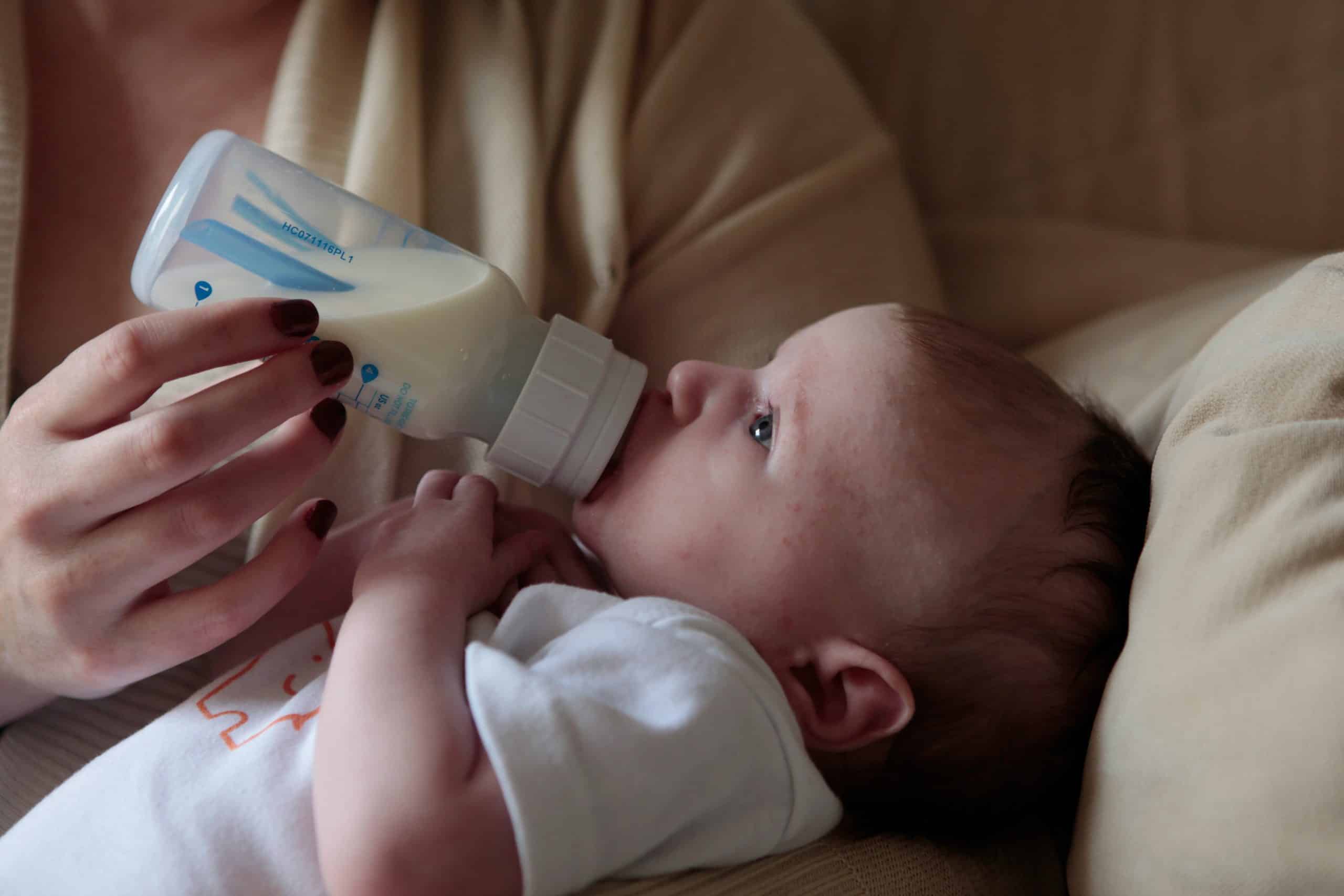1. Apgar score
The Apgar score is a quick test performed on a baby by a midwife or doctor at one minute and then at five minutes after birth. The one-minute score determines how the baby tolerated the birthing process and the five-minute score tells the doctors how well the baby is doing outside of the womb. It is sometimes repeated at 10 minutes if the baby’s initial scores weren’t good. The Apgar rating is based on an overall score of 1 to 10. Your baby’s breathing effort, skin colour, heart rate, muscle tone and reflexes are all examined and each is given a score of 0, 1 or 2 depending on their condition, and then all are added up at the end. The higher the score, the better the baby is doing. A score of 7, 8 or 9 is normal and a sign that your baby is in good health. A score of 10 is very unusual as almost all newborns lose a point for blue hands and feet – both of which are completely normal after birth. Any score lower than 7 is a sign that the baby needs medical attention, and she may receive oxygen and need to have her airway cleared to help her breathe or physical stimulation to get her heart beating at a healthy rate. Most of the time a low score at one minute becomes near normal by five minutes. A lower Apgar score does not mean a child will have serious or long-term health problems and is not designed to predict the future health of the child. It is generally just caused by a difficult birth, a C-section or fluid in the baby’s airway.
2. Meconium
This is the first bowel movement that your baby will pass. It is a greeny-black substance composed of materials ingested while your baby is inside you – cells, mucus, bile and water. It is very sticky and tar-like, which makes it very difficult to clean off your baby’s bottom even with wet wipes! It has usually completely passed through her system after a couple of days when her poo will begin to change to yellow in colour. This is a good indication that your milk is beginning to come through if you are breastfeeding. Usually, this substance is not released in your baby’s bowel movements until after the birth. Occasionally though some babies will pass meconium while you are in labour. This will show itself in your waters as they break as they will be stained green instead of clear. If meconium is found to be present in your waters, then you will be monitored more closely, to check for foetal distress, and action will be taken if there is a problem. More often than not, babies who pass a small amount of meconium while the mother is in labour are born without any health issues – my eldest was one of these. My waters were stained green when they broke. I was put on a foetal monitor for the rest of my 14-hour labour, but luckily my baby boy was born healthy. On rare occasions, a baby can ingest the meconium into their lungs while still in the womb, and this is a problem requiring medical attention.
3. Afterpains
Most women don’t feel these after their first pregnancy and birth but will experience them with any subsequent children. Afterpains are caused by your uterus contracting as it attempts to shrink back to its pre-pregnancy size. It does this more efficiently after your first pregnancy, but your uterus loses muscle tone during subsequent pregnancies and it has to contract more, which is why it is felt more. The pain is very similar to period pain and you will feel cramping in your abdomen. If you decide to breastfeed you will feel the cramps more strongly as your baby latches on to feed. This is because your baby’s sucking releases a hormone called oxytocin, which stimulates your uterus to contract more. If you do experience afterpains mention them to your midwife, and she will advise you on safe pain relief medications. They will be most intense for the first eight hours after delivery and only usually last three to four days.
4. Hearing test
The NHS Newborn Hearing Screening Programme (NHSP) offers all new parents the opportunity to have their baby’s hearing screened within the first few weeks of life. Today, many babies will have their hearing tested before leaving the hospital. The tests are simple and painless and only take a few minutes. The new hearing screening tests use sophisticated technology, can be carried out almost immediately after birth and are much better at identifying a possible hearing impairment than the previous health visitor distraction test done at eight months.
5. An unsettled first night
The first full night that you spend either in the hospital or at home is usually pretty rough. If you have had pain relief such as pethidine or an epidural then your baby may be sleepy for the first day or so and your ‘rough night’ will be delayed, but it will arrive. Your baby has been used to being nice and cosy inside the womb for the last nine months. She has been reassured by the noises inside your tummy – your blood rushing around, your heart beating, and noises vibrating from the outside world. When your baby is born and is then just expected to go in a Moses basket or cot to sleep in a dark, quiet house, she can be very unsettled. She will crave the closeness of being held and you will probably find that she will cry each time you try to put her down for any length of time. Swaddling and using rolled-up towels will help her get used to the cot, as they will help her feel cuddled and cosy. This and other sleeping positions are explained in more detail in Chapter 5. In the first couple of days, however, you need to allow her the comfort of being held and sleeping close to you while she gets used to being in the world and all the new challenges that bring. This will reassure her and give her the confidence to be more settled in the long term.



